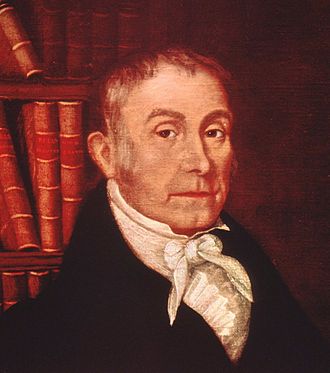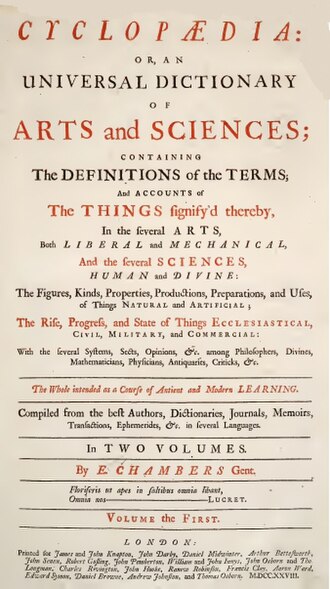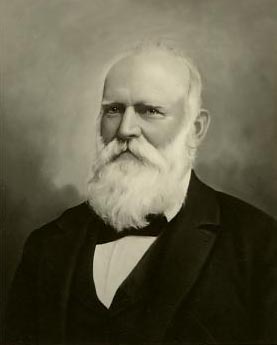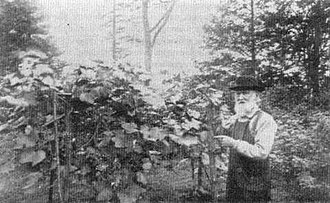Discover Your Roots
SIGN UPDiscover Your Roots
SIGN UPEphraim is a male name of Hebrew origin, meaning "Very Fruitful." It is a masculine given name first used by the Israelite patriarch of that name. In modern English, it is typically pronounced /'i:f.rəm/. The name carries connotations of fruitfulness, fertility, and productivity. Alternative spellings include Ephrem, Efrem, Efreom, Ephraem, Efren, or Efrén. Famous bearers of the name include Ephraim the Syrian, Ephraim of Antioch, and Ephraim Amu, among others. Additionally, fictional characters such as Ephraim Black from the Twilight series and Prince Ephraim from the video game Fire Emblem: The Sacred Stones have added depth and popularity to the name. Ephraim is a timeless name with a meaningful and positive connotation, making it a popular choice for many parents.

Ephraim McDowell (November 11, 1771 – June 25, 1830) was a renowned American physician and pioneer surgeon, celebrated as "the father of ovariotomy" and a founding figure in abdominal surgery. Born in Rockbridge County, Virginia, to Samuel and Mary McDowell, he received his early education at the classical seminary of Worley and James before pursuing medical studies under Dr. Alexander Humphreys in Staunton, Virginia, and at the University of Edinburgh, Scotland. Upon returning to Danville, Kentucky, in 1795, McDowell began his practice as a surgeon and gained prominence for his expertise in lithotomy and surgical techniques. His most notable achievement came in 1809 when he performed the world's first successful removal of an ovarian tumor on Jane Todd Crawford, a groundbreaking feat in the history of medicine. McDowell's meticulous and innovative approach to surgery, despite the absence of anesthesia and antiseptics, solidified his legacy as a pioneering figure in the field. Despite criticisms and challenges, his contributions to the advancement of surgical practices have left an indelible mark on the medical world, earning him widespread recognition and respect.

Ephraim Chambers (c. 1680 – 15 May 1740) was an English writer and encyclopaedist, renowned for his notable work, the Cyclopaedia, or an Universal Dictionary of Arts and Sciences. Born in Milton near Kendal, Westmorland, England, Chambers attended Heversham Grammar School and later apprenticed to a globe maker in London. His dedication to the encyclopedia project led to the publication of the first edition of the Cyclopaedia in 1728, dedicated to George II, King of Great Britain. Chambers also contributed to the Literary Magazine and worked on translating works from French. His epitaph, written by himself, highlighted his significant influence on the Encyclopédie of Diderot and d'Alembert. Chambers' legacy extends to his work being the original source for the French Encyclopédie. His impact on the field of encyclopedias and knowledge dissemination remains a testament to his enduring influence. For those interested in exploring his work further, Chambers' Cyclopaedia has been digitized and made available online by the University of Wisconsin Digital Collections Center.

Ephraim Lewis (27 November 1967 – 18 March 1994) was an English soul/neo-soul and R&B singer and songwriter. Despite his short career, Lewis made an impact with his album "Skin," which peaked at number 185 on the Australian ARIA charts. Tragically, his promising career was cut short when he died after falling from a balcony during a police pursuit, following an altercation with the Los Angeles Police Department. The circumstances surrounding his death sparked controversy, with his cousin, Naomi Hobbs, claiming that he was "murdered by the police." Lewis's funeral in Wolverhampton was attended by hundreds, with his manager covering the expenses. Kevin Bacon, who discovered Lewis, praised his talent and potential. The events leading to Lewis's death remain disputed, as an investigation was not carried out. Despite his untimely passing, Ephraim Lewis left behind a musical legacy that continues to resonate with fans of soul and R&B music.

Ephraim Knowlton Hanks (21 March 1826 – 9 June 1896) was a prominent figure in the 19th-century Latter Day Saint movement and a well-known leader in the early settlement of Utah. Born in Ohio, Hanks joined The Church of Jesus Christ of Latter-day Saints in 1845 and played a significant role in the westward trek to the Rocky Mountains, serving in the Mormon Battalion and participating in the Utah War. He was also involved in the rescue of the Martin handcart company in 1856. Known for his obedience to church leaders, Hanks practiced plural marriage and had 4 wives and 26 children. He worked as a U.S. mail carrier and later became a station master for the Pony Express, facilitating mail service on the Mormon Trail. Hanks' legacy is honored with cultural references, including the 2013 movie "Ephraim's Rescue" and the EPH Hanks Tower in Capitol Reef National Park. He passed away at Floral Ranch, Wayne County, Utah, and was buried in the Caineville Cemetery. Ephraim Knowlton Hanks' life was a testament to his unwavering dedication to his faith and contributions to the development of Utah.

Ephraim Wales Bull (March 4, 1806 – September 26, 1895) was an American farmer renowned for developing the Concord grape. Born in Boston, Massachusetts, Bull's journey to grape breeding began when he settled in Concord in 1836, after struggling with lung issues. It was here that he meticulously crossbred grape varieties to create a resilient grape suitable for New England's harsh climate. By 1853, his creation, the 'Concord' grape, was available for purchase. However, despite its success, Bull saw little financial gain as other growers quickly began cultivating their own Concord grapes from vines purchased from him. Aside from his grape breeding endeavors, Bull also served as a Massachusetts House of Representatives member in 1855. After a fall in 1893, he spent his final days at the Concord Home for the Aged, passing away on September 26, 1895, at the age of 89. He was laid to rest in the Sleepy Hollow Cemetery in Concord, with the epitaph "He Sowed Others Reaped," a poignant biblical reference. Ephraim Wales Bull's legacy lives on through his enduring contribution to grape cultivation.
All images displayed on this page are sourced from Wikipedia or Wikimedia Commons.We use these images under their respective Creative Commons or public domain licenses. Wherever applicable, author attributions and license information are provided. If you believe an image is used incorrectly or outside its license terms, please contact us so that we can review and correct the issue.